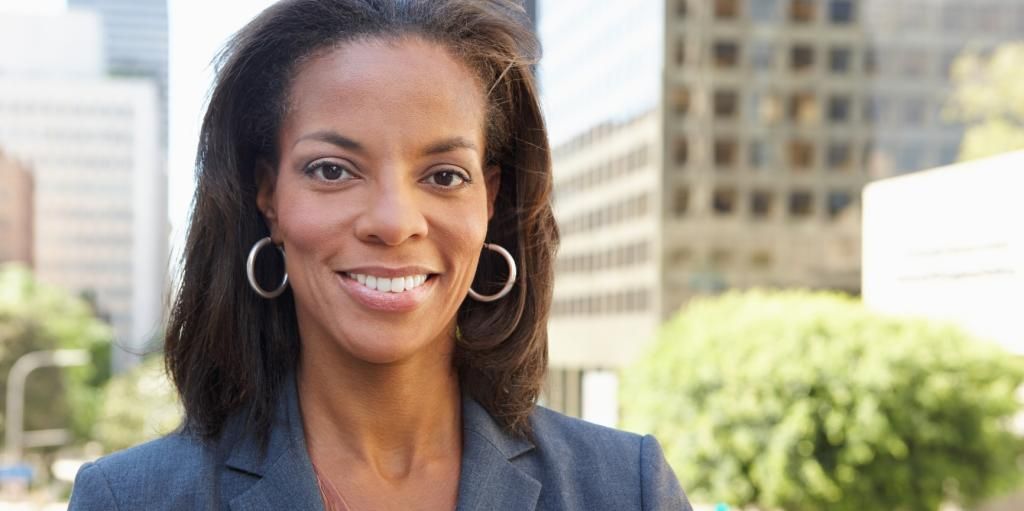A Black Man’s Struggle is Not a Black Woman’s Success

by Samone Hamilton
I recently read an article on The Root by Diana Ozemebhoya Eromosele titled, “Michael Brown’s Death Reopened My Eyes to My Privileges as a Black Woman.”
The title alone elicited a major side eye, but I put my skepticism aside long enough to read on. In the article, Eromosele comes to an epiphany about the “privileges [she has] being a black woman in America.” This grand awakening was based upon two friends sharing their “tactics” for avoiding potentially life-threatening confrontations as they navigate being Black men in America. She marveled at advice as basic as, “It is dangerous to get in arguments with drunk men.” After reading up to this point, I was certain I was being trolled by parody journalism and had to recheck the URL to confirm I was still on The Root’s website. (I was.)
This is simply not true.
It will forever be a grave miscalculation to compare the plight of black women to that of our fellow black men, and then conclude that we have more privilege within the U.S.: "You got whipped 50 times, but I only got whipped 49 ... so I must be more privileged than you."
This author’s enlightening moment of her “privilege” as a black woman came to her during an incident in which she did not know when it was unacceptable to engage in conversations with drunken fools, but the friend she came with—who happened to be a black man—did. This should not be mistaken for privilege by any means. And while Michael Brown’s death is a horrific tragedy that illustrates just how little mainstream society values black men and black lives, it does not tell us that black women have “more privilege.”
Knowing when it is not OK to engage in arguments with intoxicated people is not knowledge the author’s friend gained by being an “unprivileged” black man. Again, it’s basic common sense to know that debating with a belligerent drunk is more likely to end in violence than it will a pleasant resolution to a conflict. The fact she had not yet learned that simple lesson speaks more to her individual privilege and sheltering than it does to the privilege of black women as a whole.
If one insists on opening up a discussion about the alleged privileges of black woman in America compared to those of black men, there are numerous women who would love to join in the conversation, but cannot: Yvette Smith, Shantel Davis, Sharmel Edwards, Tyisha Miller, Shereese Francis, Aiyana Jones, and Tarika Wilson… just to name a few. All black. All women. All murdered by police. All unarmed. Michael Brown's death has made international news, yet these seven women’s names and their stories have never crossed the lips of even a third of the citizens in this country. Tell me again, how is invisibility and erasure a privilege?
And the idea that black women do not have to “self-edit” themselves to fit into white spaces is ludicrous. What about Vanessa VanDyke, the 12-year-old black girl who complained to her school about being picked on and bullied for wearing her hair in its natural state? How did the school respond? Vanessa faced expulsion if she did not cut off her natural hair, because the school labeled it a "distraction."
Does that sound like "privilege” to you?
Vanessa experienced the same pressure that many professional black women face when wearing their hair in its natural state. These women must decide between straightening their hair, to seem “more professional” and to keep their jobs. Recently, People Magazine’s Twitter account felt the wrath of “Black Twitter” when they made this comment about Olivia Pope’s appearance: “Olivia’s back to straight hair, so you KNOW she means business.” How we wear our hair is only one part of the struggle black women go through to “self-edit” ourselves to appeal to Whiteness. Self-editing is not something that is only experienced by black men.
So next time someone feels it is necessary to use Michael Brown’s murder to educate us on what it means to be a “privileged” black women in America, please remember Vanessa. Remember Yvette. Remember Tarika. Remember you. Remember me.
The struggle for equality in America is not a competition between marginalized groups (e.g. black women, white men, Hispanic people, LGBT people, etc.). It is a struggle for universal equality for every person, regardless of how they identify or how their identities intersect. The experiences of our sisters should never be measured against the those of our brothers, and vice versa.
The black man’s struggle is not indicative of the black woman’s success.
Samone Hamilton is a 24-year-old third year law student at The University of Texas School of Law. She is currently studying International Intellectual Property Law overseas at Queen Mary University of London.
or tweet her @SamoneHamilton

No comments: